Secretary, Ministry of Panchayati Raj Shri Vivek Bharadwaj inaugurated the Cross Learning Interactive National Workshop on Gram Panchayat Spatial Development Plan (GPSDP) at Bhopal, Madhya Pradesh today. Shri Malay Shrivastava, Additional Chief Secretary, Department of Panchayat & Rural Development, Government of Madhya Pradesh, Shri Alok Prem Nagar, Joint Secretary, Ministry of Panchayati Raj, and Prof. (Dr.) Kailasa Rao M, Director, School of Planning and Architecture, Bhopal were also present on the occasion.

In his address, Secretary emphasized the pivotal role of Gram Panchayats, partner institutions and key stakeholders in developing selected Gram Panchayats as Model Gram Panchayats, setting an example for others to follow. He stressed the importance of expediting efforts for reconstructing Panchayats with a spatial approach, contributing to the development of India. Shri Bharadwaj underlined the need for a well-thought-out and well-planned spatial development plan, coupled with strong determination and dedication for its implementation.
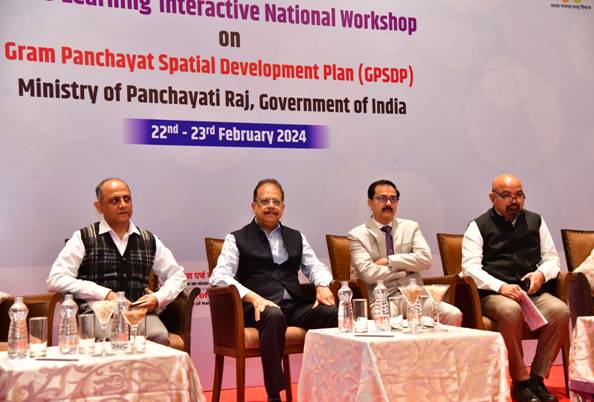
Shri Vivek Bharadwaj highlighted the importance of leveraging available resources and mobilizing the necessary support to translate vision and initiative of Gram Panchayat Spatial Development Plan into action effectively. By promoting systematic and synergistic interventions, any gaps in resource mobilization can be addressed, further facilitating the successful implementation of spatial planning initiatives in Gram Panchayats, added Shri Bharadwaj. Shri Bharadwaj emphasized upon spatial approach and importance of coordinated actions and collaborative efforts among various stakeholders to effectively execute spatial plan and ensure sustainable development at the grassroots level. Highlighting the significance of the Gram Panchayat Spatial Development Plan, Shri Vivek Bharadwaj urged participants to earnestly commit to its implementation within a defined timeframe, fostering sustainable rural development. Secretary called upon Gram Panchayats, partner agencies and stakeholders to seize opportunity of Amrit Kaal for advancing concerted action towards implementing spatial planning at grassroots level and ensuring its regular monitoring.

Shri Vivek Bharadwaj expressed hope that the two-day National Workshop will serve as a forum to provide a clear framework and direction towards advancing this crucial initiative, ensuring the empowerment and development of Gram Panchayats across the nation.
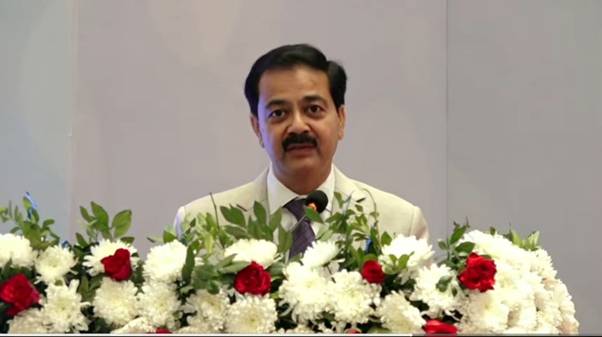
Shri Malay Shrivastava, Additional Chief Secretary, Department of Panchayat & Rural Development, Government of Madhya Pradesh called for the convergence of resources and a symphony of efforts to implement the Spatial Development Plan in Gram Panchayats.
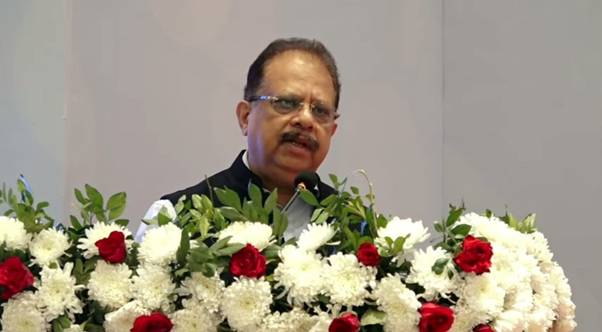
Addressing the National Workshop on Gram Panchayat Spatial Development Plan Shri Alok Prem Nagar, Joint Secretary, Ministry of Panchayati Raj made a comprehensive presentation on Spatial Planning for Rural Areas and the Way Forward, and provided valuable insights into the workshop’s objectives and initiatives. Shri Alok Prem Nagar highlighted the need for spatial planning interventions and initiatives taken by Ministry of Panchayati Raj.
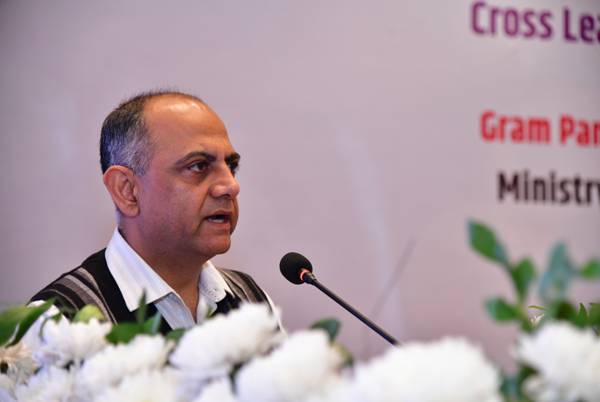
Prof. (Dr.) Kailasa Rao M, Director, School of Planning and Architecture, Bhopal, extended a warm welcome to all the participants and delegates, and shared an overview of the current status and roadmap of the spatial planning process.
The National Workshop, organized by the Ministry of Panchayati Raj in collaboration with the School of Planning and Architecture, Bhopal, witnessed the participation of distinguished delegates from various State Departments of Panchayati Raj, planning and architecture institutes, industry experts, Smart City Mission leaders, financial institutions, and government agencies.
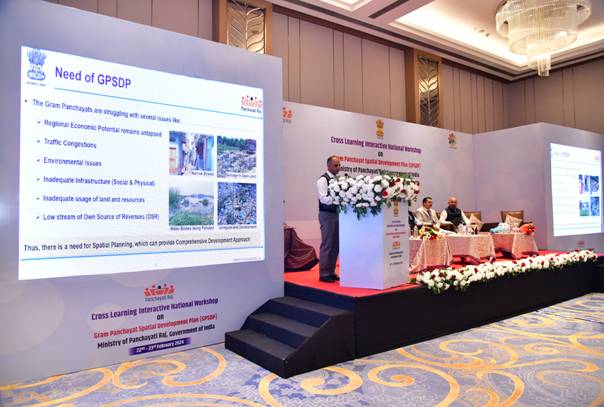
Presentations were made about the spatial development plans created in the States of Madhya Pradesh, Karnataka, Odisha, Uttar Pradesh, Chhattisgarh, Maharashtra and West Bengal. The officers from the Town and Country Planning Departments also explored the best options for inserting planning in rural areas. Discussions also delved into the utilization of GIS-based technology in Smart Cities and the implementation of Rural Area Development Plan Formulation and Implementation (RADPFI) guidelines. The workshop aims to conclude with significant takeaways and learnings for Gram Panchayats and State-level institutes, fostering long-term planning solutions for India's villages.
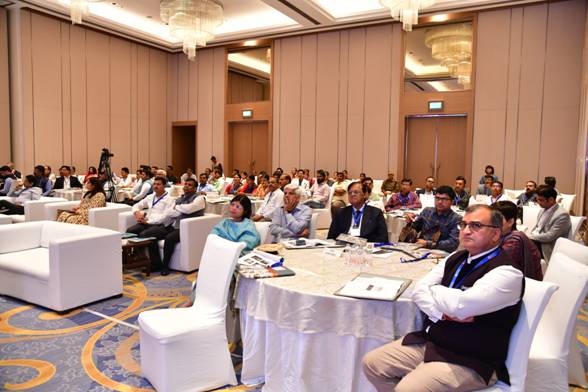
****



0 Comments